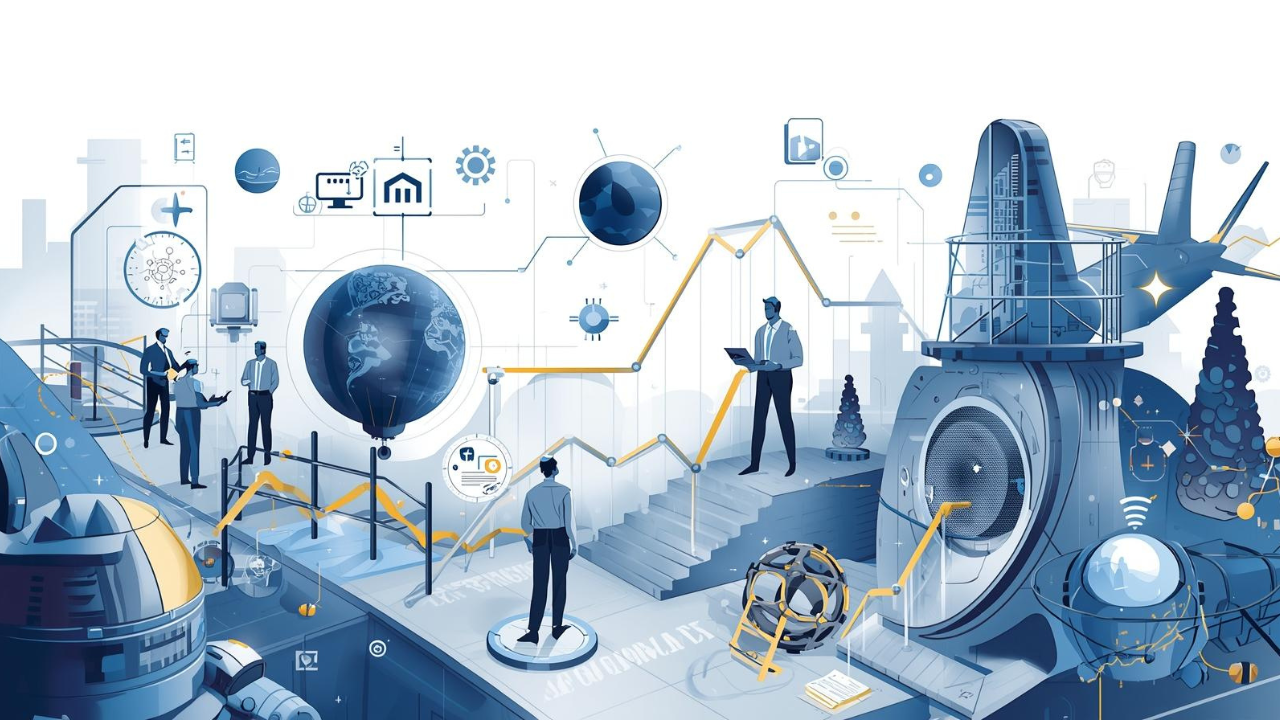
Post by : Shivani
In 2025, the defense sector is navigating significant workforce challenges brought on by rapid technological advancements, shifting strategic priorities, and evolving geopolitical tensions. These challenges necessitate comprehensive upskilling and workforce transformation initiatives to sustain innovation and operational effectiveness.
The aging defense workforce presents a critical risk, with a significant portion approaching retirement age. This trend threatens to deplete vital institutional knowledge, requiring structured knowledge transfer and mentorship programs.
More than 25% of current defense employees are eligible for retirement within the next five years, intensifying the urgency for robust talent pipelines and retention strategies.
The demand for high-tech skills in AI, cybersecurity, advanced manufacturing, and unmanned systems exceeds supply, compounded by competition from the broader tech industry.
Extended reality (XR), AI-driven simulations, and virtual training environments are revolutionizing the pace and effectiveness of defense workforce development.
XR platforms provide hands-on experience in complex system operation, reducing training time and improving retention among defense personnel.
Using augmented reality glasses, technicians can diagnose and repair sophisticated equipment with real-time digital overlays, enhancing accuracy and speed.
Intelligent training systems tailor educational content based on individual learning patterns, accelerating upskilling in cyber defense and systems engineering.
Defense organizations face stiff competition for talent with private sector firms offering attractive salaries and flexible work environments.
Introducing hybrid work models, career development programs, and enhanced employee benefits are key to attracting and retaining top talent.
Lengthy clearance processes delay hiring, prompting efforts to streamline procedures and build partnerships with educational institutions to pre-clear candidates.
Advanced analytics and workforce planning models help forecast skills demand and enable proactive training and recruitment.
AI tools analyze workforce data to identify future skill gaps, guide hiring, and optimize resource allocation.
Emphasizing diversity in recruitment enhances innovative capacity and aligns with broader social equity goals.
Programs targeting underrepresented groups in science, technology, engineering, and math (STEM) fields expand the talent pool for defense-related roles.
Collaboration between defense organizations, universities, and technology firms helps close skill gaps and accelerates workforce readiness.
Joint programs provide hands-on experience and rapid integration of emerging talent into defense roles.
Policymakers should prioritize funding for workforce development initiatives, incentivize STEM education, and support innovative training technologies.
The defense sector’s future readiness in 2025 hinges on effectively addressing workforce challenges through strategic upskilling, talent management, and inclusive recruitment. Harnessing innovative training tools and fostering strong partnerships will ensure sustained technological leadership and strategic advantage in an increasingly complex security environment.
#DefenseWorkforce #DefenseSector #Upskilling #WorkforceDevelopment #AerospaceAndDefense #DefenseTechnology










Advances in Aerospace Technology and Commercial Aviation Recovery
Insights into breakthrough aerospace technologies and commercial aviation’s recovery amid 2025 chall

Defense Modernization and Strategic Spending Trends
Explore key trends in global defense modernization and strategic military spending shaping 2025 secu

Tens of Thousands Protest in Serbia on Anniversary of Deadly Roof Collapse
Tens of thousands in Novi Sad mark a year since a deadly station roof collapse that killed 16, prote

Canada PM Carney Apologizes to Trump Over Controversial Reagan Anti-Tariff Ad
Canadian PM Mark Carney apologized to President Trump over an Ontario anti-tariff ad quoting Reagan,

The ad that stirred a hornets nest, and made Canadian PM Carney say sorry to Trump
Canadian PM Mark Carney apologizes to US President Trump after a tariff-related ad causes diplomatic

Bengaluru-Mumbai Superfast Train Approved After 30-Year Wait
Railways approves new superfast train connecting Bengaluru and Mumbai, ending a 30-year demand, easi